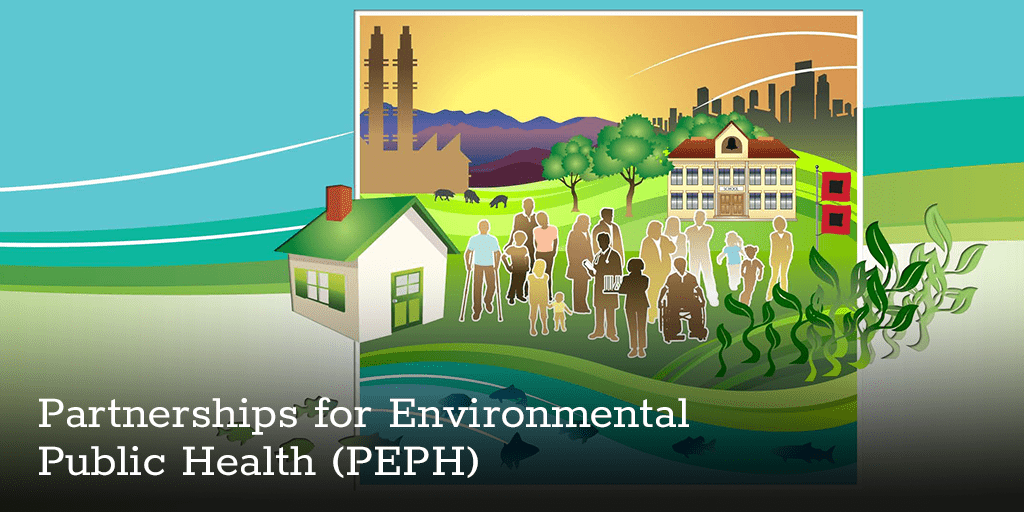The Lung Health Ambassador program, a community-based, NIEHS-supported educational campaign with a focus on health disparities, promotes healthy behaviors and risk prevention around lung health for Baltimore-area students in grades 7-12. The program also engages students in advocacy activities, such as letter writing, aimed at supporting lung health and decreasing air pollution in their own communities. A recent paper describes the program and an evaluation of the program’s first year in greater detail.
Baltimore has a higher prevalence of smoking than the U.S. national average, and some tobacco stores are easily accessible to minors. Through the Lung Health Ambassador program, Johns Hopkins researchers empower Baltimore-area youth to be advocates for lung health in their own communities. The program’s goal is to train young students in matters related to lung health and pathology, risk factors, and ways to advocate for clean air.
The program is hosted by Johns Hopkins’s Medicine for the Greater Good, which promotes health and wellness for diverse populations through community partnerships that address socioeconomic barriers to health. The Lung Health Ambassador program will begin its fourth year in fall 2021.
“Tobacco use has created health disparities for people of certain races, ethnicities, and socioeconomic statuses, and it’s also the leading cause of preventable health problems,” said Panagis Galiatsatos, M.D., co-founder and co-director of Medicine for the Greater Good and founder of the Lung Health Ambassadors program. “Given Baltimore’s diverse population and high rates of smoking, we wanted to address lung health and tobacco use in youth, which could reduce future smoking. So, we started the Lung Health Ambassador program with a focus on pulmonary-related health disparities.”
Baltimore-area schools and recreation centers interested in the program can volunteer to have it implemented in their community.
The Lung Health Ambassador Program’s Structure
The Lung Health Ambassador curriculum consists of five sessions: lung anatomy and function, asthma, environmental air pollution, smoking and tobacco, and ambassador training. Researchers and teachers worked together to create the lessons. Each has didactic and hands-on components, such as building model lungs and creating plans to reduce the impact of peer pressure on smoking, to help maintain student interest and reaffirm learning objectives. The program ends with a graduation ceremony, with each student becoming a certified Lung Health Ambassador.
During the program’s inaugural academic year of 2018-2019, the curriculum was administered at two middle schools, one high school, and two recreation centers.
Students participating in the Lung Health Ambassador sessions (bottom, right) and a poster signed by student participants (top, left). (Photo courtesy of Panagis Galiatsatos, M.D.)
The Lung Health Ambassador Program’s Impact on Youth
During the program’s sessions, both teachers and students were given the opportunity to provide feedback. Participant feedback indicated that youth identified with what they were learning because of the program’s focus on health disparities. For example, one student remarked that it bothered him to see that being poor means a person may smoke more, and this realization made him want to protect his community. Another student was excited about the opportunity to help make laws to protect his friends from lung diseases.
“The program’s focus on health disparities proved critical in making content relevant to Baltimore youth. Students learned the material and realized it actually applied to people they knew – it wasn’t just an abstract idea,” said Galiatsatos.
Other students’ comments reflected an understanding that risks to lung health were relevant to them as youth. One student realized that harming lungs at a young age will keep them from reaching their potential, and another said that air pollution is about air in his home. Some students also express an increased interest in science and medicine after participating in the program.
“The hands-on component brings everything full circle and helps students understand the gravity of lung health,” said Galiatsatos. “They then get to apply everything they’ve learned to an advocacy project.”
Lung Health Ambassador Training Leads to Community Activism
The ambassador training makes the program stand out from traditional classroom teaching. During the training session, students create action plans to improve lung health and reduce air pollution in their own communities. They carry out these plans over the summer, thus building community capacity and environmental health literacy.
Students conduct a variety of actions to inform change. In 2018-2019, 268 youths participated in the program, and 240 of them wrote letters to local politicians, such as Maryland’s governor, to advocate raising the legal age for acquiring tobacco products from 18 to 21. In February 2019, three high school students provided testimony to state leaders to show support for Tobacco 21, a federal law enacted in 2019.
Another major student advocacy project was creating a smoke-free environment for property around participating recreation centers, including playgrounds and basketball courts. Students created and posted signs promoting smoke-free outdoor areas at the beginning of the recreation center’s summer season. The second and third years of the program had additional discussions about air pollution, and students gave presentations about how to reduce air pollution in their neighborhoods.
“We were excited to see that the first year of the program was such a success – we reached hundreds of students who enacted varied projects to improve lung health in their own communities,” Galiatsatos said. “We’ve already implemented the program three times and are continuing to learn a lot about how to best reach youth and communities about lung health. Our immediate next steps are to figure out how to reach more diverse communities and how our program can be adapted for other respiratory-related health issues.”
Source link
www.niehs.nih.gov



